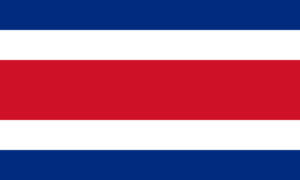
Region: Americas
Disability Definition
According to the Law for the Promotion of the Personal Autonomy of Persons with Disabilities (2016), a person with disability is defined as “those that have long-term physical, mental, intellectual, or sensory impairments that, when interacting with various barriers, may prevent their full and effective participation in society, on an equal basis with others.”
Legislation
Costa Rica has the following disability legislation:
Law No 7600, Ley de Igualdad de Opportunidades (The Equal Opportunities Law for People with Disabilities), which declares no person can be discriminated because they’re disabled if they are equally capable as another person. Act No. 18283 of February 2014, amending Act No. 7600 on Equal Opportunities for Persons with Disabilities, brought the definition of persons with disabilities and of accessibility into line with the CRPD. This law also ensures equal opportunities for the Costa Rican population in areas that include: health, education, work, family life, recreation, sports, culture and other dimensions.
Costa Rica signed the UN Convention on the Rights of Persons with Disabilities on 30 March 2007 and ratified the treaty on 1 October 2008.
Act No. 9049 of June 2012, recognizing Costa Rican sign language as an official language.
Law no. 9379 of 2016 on the Promotion of Personal Autonomy of Persons with Disabilities was put in place to promote and ensure that persons with disabilities exercise their right to personal autonomy fully and on an equal basis with others.
Employer Legal Requirements
Law on the Inclusion and Protection of Persons with Disabilities in the Public Sector, No. 8862, September 2010, quota of 5 percent for the person with disabilities only for the public sector.
Reference: Costa Rica – ENGLISH – WEB1.pdf (undp.org)
Accessibility Requirements
Mandatory technical specifications for new constructions or remodeling of existing buildings, parks, sidewalks, gardens, plazas, lanes, restrooms, and other public spaces, must be performed in compliance with the mandatory technical specifications issued by the corresponding public or private entities. All private buildings destined for public use must comply with the same indications hereinabove.
Public and private institutions must ensure that all information for public use is accessible for all persons, in accordance with the persons´ particular needs.
Sanctions for not complying with accessibility regulations. Construction authorities (the constructors) who do not comply with accessibility regulations contained in this law may be obliged, upon the victims request, to perform, at its own expense the necessary adaptations to ensure said accessibility right.
Costa Rica has defintions of ICT and reasonable accommodation.
Reference: Disability in Costa Rica: Definition, Laws, Employment and Social Status (wecapable.com)
Cultural Norms
May 28 is the Día Nacional de la Persona con Discapacidad (National Disabled People Day) to promote respect for disabled people.
However, “Although more than 88% of this population has access to social security, Costa Rica still faces significant challenges to ensure their right to education and work. For instance, just 5.7% of the population with disabilities ageing 18 years or older attend formal education, and 95.5% attend educational centers that do not have support related to curricular adaptations. In addition, 55.4% of the educational centers they attend are not accessible.”
References: UNSDG | ‘It’s society, not disability, that puts barriers in your way,’ says Costa Rican activist and Disability in Costa Rica – Wikipedia
Business Practices/Examples
Additional content coming soon.Insights
According to official data, more than 18% of Costa Rican population has a disability, which is equivalent to more than 670,000 people. Of the total number of people with disabilities in the country, 39.1% are men and 60.9% are women. 56% of people with disabilities aged 18 or older are unemployed.
Reference: UNSDG | ‘It’s society, not disability, that puts barriers in your way,’ says Costa Rican activist
Supplier Diversity
Certification is in place for women-owned business enterprises (WeConnect).
Certification is in place for LGBT-owned enterprises (NGLCC Network: La Cámara de Comercio Diversa de Costa Rica).
Talent Sourcing Resources
CONAPDIS promoting and overseeing compliance with the human rights of people with disabilities, to promote their inclusive development in all areas of society.
Costa Rica’s Ministry of Work and Social Security is responsible for sourcing candidates for disability inclusion in the workplace. Mr. Andrés ROMERO RODRÍGUEZ, Director of National Employment Directorate, Ministry of Work and Social Security.
AED’s Red de Impresas Inclusivas: “The Inclusive Business Network”, a coalition of companies working to increase employment opportunities for people with disabilities. and details here.
Additional Resources
CONAPDIS – El Consejo Nacional de Personas con Discapacidad.
The Latin American Network of Non-Governmental Organizations of Persons With Disabilities and their Families (RIADIS) is a network formed by organizations of persons with disabilities from 19 countries in Latin America and the Caribbean. Formed in 2002, RIADIS represents national DPOs as well as several NGOs acting as technical collaborators.
